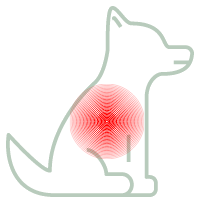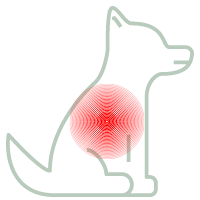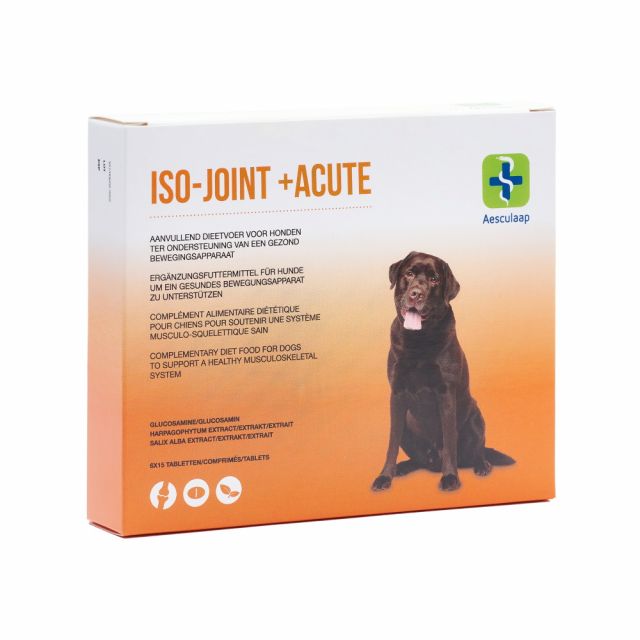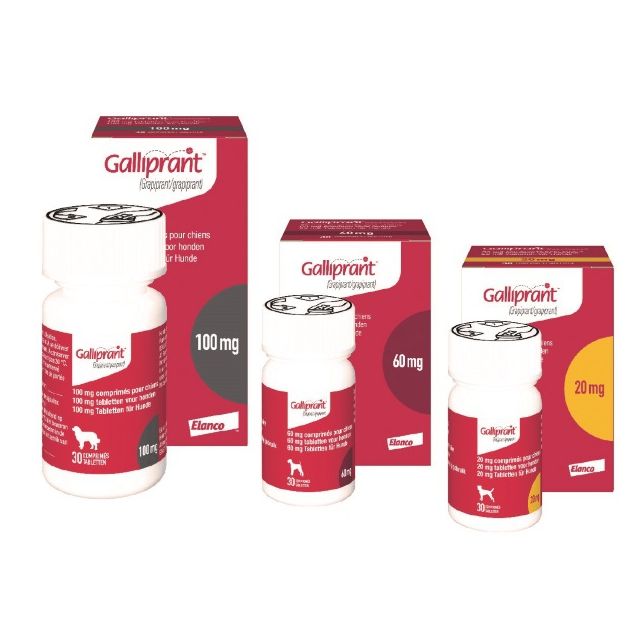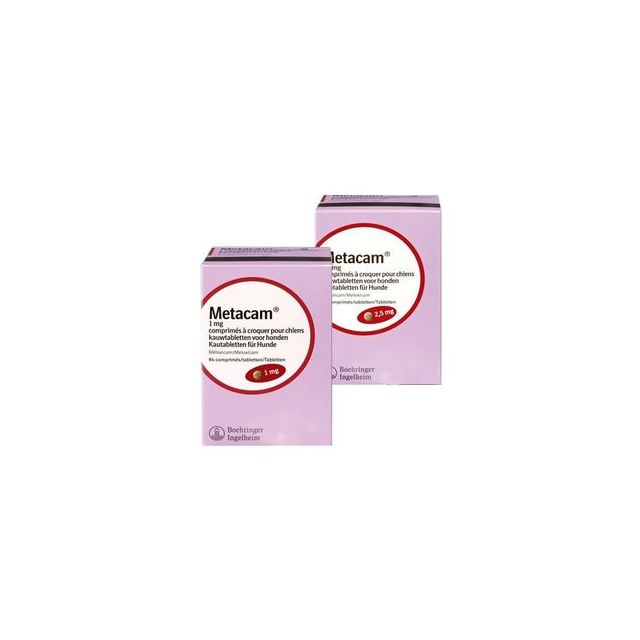Pain and inflammation in dogs
Nothing is more distressing for a dog owner than seeing their dearest companion in pain. Pain can have many different causes and can manifest in various parts of the body. Inflammation can result in more or less severe symptoms, ranging from a minor harmless swelling to pain and fever, or diarrhea and itching. Once the cause and type of pain or inflammation are determined, Pharmacy4pets is happy to help alleviate your dog's problems.
Pain in Dogs
Pain is the unpleasant sensation that indicates damage to the body or the potential for it. Initially, pain serves the purpose of preventing further damage, allowing the body to recover. However, severe or prolonged pain is detrimental to the well-being of the dog and can actually hinder recovery.
Recognizing Pain in Dogs
Because displaying pain in nature signifies weakness, dogs do not always clearly show pain. Whining or howling is often only done in cases of intense, acute pain, such as when they bump into something or experience a sudden movement causing back or neck pain. Especially chronic pain is often difficult to recognize because behavioral changes tend to occur gradually. However, it is crucial to recognize signs of pain, as early pain management can prevent a lot of suffering. Some signs of pain include:
- Rapid breathing / panting, increased heart rate.
- Licking, scratching, or biting the painful area (sometimes resulting in a hotspot) or reacting strongly when the sore spot is touched.
- Altered posture: for example, a praying position with abdominal pain, lying differently than usual with back pain.
- Altered mobility: for example, walking with an arched back, keeping the neck stiff, limping.
- Seeking more or less interaction with the owner.
- Reduced enthusiasm for going outside.
- Reduced appetite.
- Whining, howling, growling.
- Change in mood: appearing less energetic or cheerful, symptoms of depression, changes in behavior towards other animals.
- Aggression.
- Withdrawing or hiding.
Especially in older dogs with pain due to conditions like arthritis, behavioral changes and stiffness are often attributed to old age. However, something can and should be done about the pain in these dogs!
Causes of Pain
A dog can experience pain anywhere in its body, from its head to its toes. Common types of pain include:
- Orthopedic pain: pain in the musculoskeletal system, such as in the muscles, bones, or joints. This can include pain from a wrong movement (strain or sprain), fractures, pain from conditions like hip and elbow dysplasia, and very commonly, pain from arthritis.
- Pain from trauma: for example, pain after being bitten by another dog, colliding with a fence during play, or stepping on something sharp. Pain caused by surgery also falls into this category.
- Visceral pain: this is pain originating from the organs in the chest or abdomen, such as intestinal cramps in cases of diarrhea or constipation, inflammation of the pancreas, or pain from cancer.
- Neurological pain: for example, in the case of a hernia, the pain is caused by nerve compression.
Treatment of Pain
For the well-being of the dog, it is important to promptly and effectively manage pain by providing a painkiller. The most well-known and commonly used painkiller for dogs is the NSAID, a non-steroidal anti-inflammatory drug. This anti-inflammatory painkiller, like the others, is only available by prescription and comes in tablet form or as a palatable liquid. In addition, there are injectable painkillers that last for a month, painkillers that work well for neurological pain, and very strong opioid painkillers that are given after surgery or for severe abdominal pain. In addition to painkillers, pain can also be managed by addressing the underlying cause: the surgery to remove an irritating bladder stone or a broken leg, or the treatment of abdominal cramps and vomiting.
Dietary supplements can often nicely support the treatment of pain. A few examples: Flexadin Advanced and Iso-Joint +Acute are supplements for supporting healthy joints. If the stool is very hard, it can be softened with Iso-Gel, and honey ointment soothes and helps the skin recover.
No dog should suffer from pain, so it is important for the owner to learn to recognize pain in their dog, allowing for timely examination to determine the source of the pain and create a customized plan for optimal pain relief.
Inflammation in Dogs
Inflammation is a response of the body to a certain stimulus, such as bacteria or a virus. Inflammation can also be caused by contact with an irritating substance or hot liquid. Additionally, inflammation can be an exaggerated response to usually normal things. For example, in allergic reactions like food sensitivity or atopy. When inflammation occurs directed against the body's own tissues, it is referred to as an autoimmune reaction. Inflammation can be accompanied by an infection with bacteria or yeast (as often seen in ear infections), but not necessarily. This is known as a 'sterile inflammation,' which is the case with conditions like arthritis.
Symptoms of Inflammation
Inflammation has five characteristics: redness, swelling, pain, warmth, and loss of function. Inflammation can occur throughout the body. Depending on the location, cause, and severity of the inflammation, it can result in various symptoms. With allergies, dogs often have itching, while inflammation in a limb may cause lameness. In the case of a severe autoimmune reaction against the dog's own red blood cells (autoimmune hemolytic anemia), the dog can develop anemia, become lethargic, and have pale mucous membranes. A uterine infection usually makes the dog very ill with a high fever. Sometimes, a dog may have minimal symptoms, such as a small swelling or a red spot, for example, where a tick has bitten. Some inflammatory responses may be asymptomatic but can damage an organ, leading to symptoms of the resulting condition. This is the case with conditions like a sluggish thyroid or exocrine pancreatic insufficiency (EPI).
Treatment of Inflammation in Dogs
Since there are many different types of inflammation, the treatment depends on the location, nature of the inflammation, and its severity. If there is also a systemic infection with bacteria, antibiotics are usually prescribed. Skin inflammations are often treated locally with an anti-inflammatory cream or spray, possibly containing an antifungal or antibacterial agent. A soothing and disinfecting spray like Maxani Cleanser Spray can help combat the inflammation. Honey ointment can nicely support the healing skin.
In many cases, pain relief is also necessary for inflammation. Non-steroidal anti-inflammatory drugs (NSAIDs) are often used as they provide both pain relief and anti-inflammatory effects. For some severe inflammations like many autoimmune reactions, NSAIDs may not be sufficient, and steroid anti-inflammatory drugs (corticosteroids) are used to control the inflammation. In some cases, such as the previously mentioned hemolytic anemia, this can be life-saving. Some inflammations can only be cured through surgery. An example is uterine inflammation, where the uterus is filled with pus and must be removed as quickly as possible.
For atopy, specific anti-inflammatory drugs can suppress inflammation and itching. The usefulness of omega-3 fatty acids EPA and DHA in supporting various inflammatory processes has been extensively proven. These fatty acids are found in fish oil. Doils Skin, Megaderm, and Vetoquinol Care Omega 3-6 contain a high level of EPA and DHA. Gut bacteria play a very important role in immunity. Probiotics like Purina Pro Plan Fortiflora can support the dog's immune system.
Pharmacy4pets is here to help your dog with inflammation or pain by providing prescription medication, soothing creams, and supportive dietary supplements. If you have any questions about our products or about pain or inflammation in your dog, please contact us.

